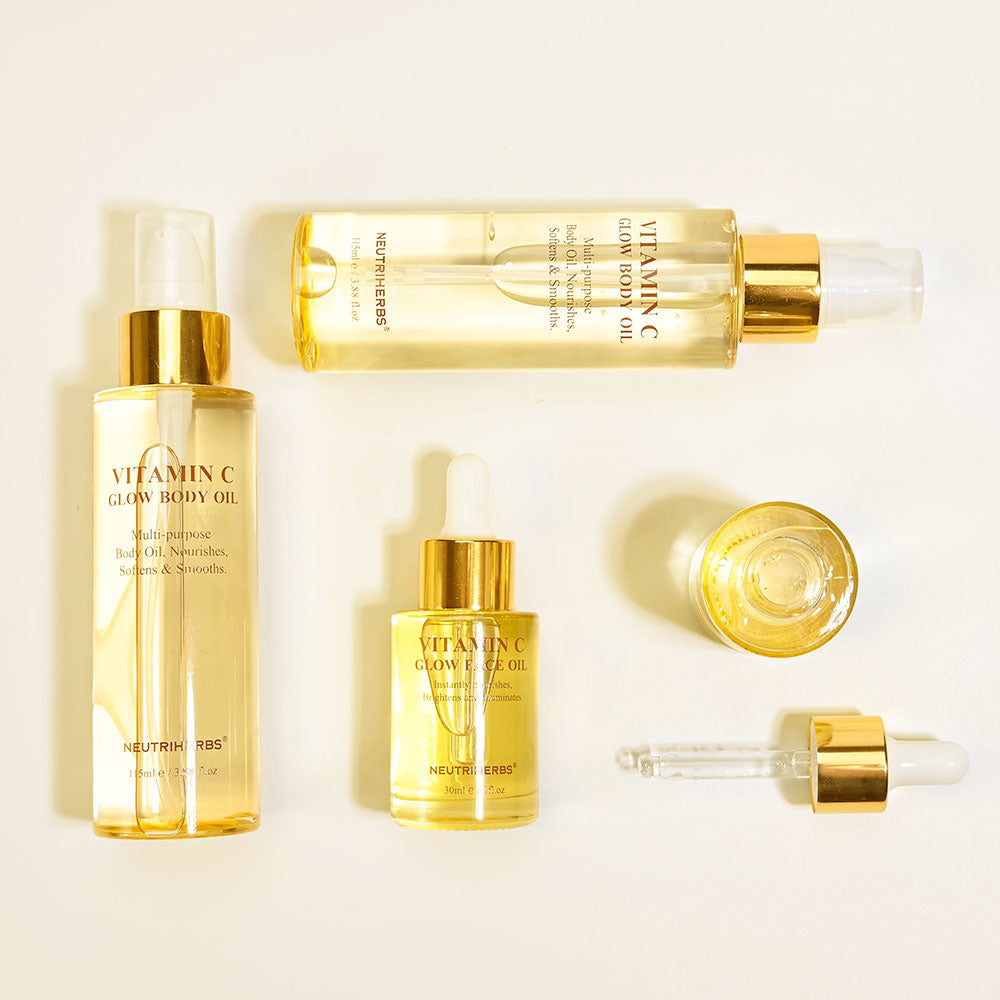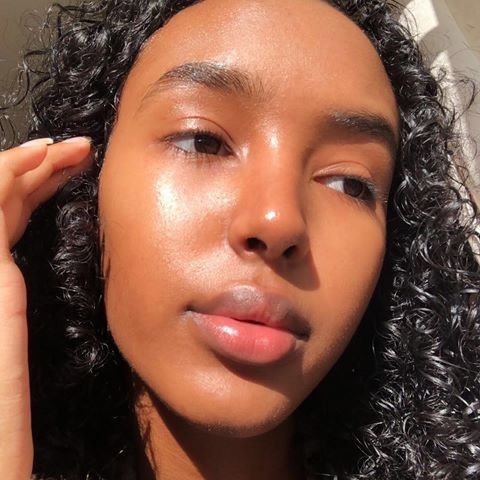
Oils on face?
Yeah, We know a lot of people are a bit skeptical when it comes to putting a product of this kind all over your skin. so, we wanted to help you understand why it is worth adding facial oils in your skincare routine. To this end, we have rounded up some of the most asked myths and misconceptions about the use of facial oils, all of them debunked and the hidden facts exposed so you can make educated decision on your own if you’d want a facial oil in your corner or not:

Myth #1: Facial Oils Clogs pores and causes Breakouts
The most common myth about facial oils is that they will clog pores and create breakouts. This is the biggest concern in our Instagram DMs and Customer service whatsapp about face oils.
The simple answer is no: facial oils will not clog your pores.
Naturally derived oils aren’t responsible for breakouts — it’s comedogenic oils, mineral oils or synthetic oils that can cause breakouts. Non-comedogenic, Antibacterial and anti-inflammatory oils like the Rosehip oil found in Neutriherbs Vitamin C Glow Face Oils is particularly good for skin-prone to breakouts.
WHAT IS THE COMEDOGENIC SCALE?
The comedogenic scale is ranked by how likely it is that any specific ingredients, such as oils used in cosmetic product formulation, will clog pores. Anyone who is susceptible to acne breakouts and blackheads should avoid highly comedogenic oils, as they are likely to cause recurring acne problems. However, people with drier skin might prefer a more emollient oil toward the middle of the scale.

The scale uses a numbering system of 0 to 5. Here’s how the numbers rank on the scale:
0 - won’t clog pores at all
1 - very low likelihood they will clog pores
2 - moderately low likelihood
3 - moderate likelihood
4 - fairly high likelihood
5 - high likelihood of clogging pores
COMEDOGENIC SCALE OF SOME POPULAR OILS YOU KNOW
Argan Oil – 0
Mineral Oil – 0
Hemp Seed Oil – 0
Squalane oil – 0-1
Castor oil – 1
Goji berry seed oil – 1
Rosehip seed oil – 1
Olive Oil – 2
Jojoba Oil – 2
Kernel oil – 2
Almond oil – 2
Evening primrose Oil – 2-3
Avocado Oil – 3
Moringa Oil – 3-4
Carrot oil – 4
Coconut oil 4
Cocoa Oil/butter – 4
Flaxseed Oil – 4
Palm oil – 4
Soybean oil - 5
Of course, acne formation is more complex than this, and some people will still develop acne even with the use of non-comedogenic face oils; however, if you have acne-prone skin and you want to use a face oil, then this is helpful as a guide.

Myth #2: Facial Oils Makes your skin more oily.
Nope, not true. It may seem somehow contrary, but face oils can be great for oily skin! Oily skin happens when the sebaceous glands make too much sebum to compensate for the lack of moisture. So, it’s essential to use products that deeply hydrate your skin and help protect your skin barrier function (a healthy skin barrier also helps keep excess sebum at bay).
Oils can help your skin regulate sebum production. For example, a hydrating and non-comedogenic oil like jojoba oil found in the New Neutriherbs Vitamin C Face Glow Oil mimics your skin’s sebum so well, it can actually trick your body into thinking it’s produced enough sebum. For those suffering from overactive sebaceous glands, facial oil might be a God send! Your skin can finally chill out and stop overacting!
Other good examples are tea tree oil and rosehip oils which have antibacterial and anti-inflammatory properties respectively which can help destroy bacteria and prevent breakouts from spreading or getting infected.
In summary, You shouldn't be nervous - using face oil on your skin won’t worsen your oily acne prone skin

Myth #3: You Can Skip Moisturizer If You Use Face Oil
Again, not true and here are the facts. Moisturizers attract water into your skin, while face oils seal that moisture in. Moisturizers contain a number of ingredients that will hydrate and nourish your skin, but have limited oil content. Face oils, on the other hand, are entirely composed of plant-derived fats that have adequate lipid content necessary to build a barrier and create a waterproof seal to prevent water and moisture from evaporating but the can’t moisturize your skin on their own. A great skincare regimen should include moisturizer followed by a face oil then sunscreen.
Myth #4: Facial Oils are Not Anti-Aging
We hear a lot that oils are nourishing but not anti-aging; let us bust this myth for you.
Neutriherbs Vitamin C Glow Face Oil transcends its category by transforming a typically nourishing product into an anti-aging powerhouse. This glow face Oil’s formula has Squalane as one of it’s key active ingredients.
Dry skin tends to magnify wrinkles, hydrated skin does not. Squalane oil has an amazing emollient property that helps lock in hydration which makes skin looks plumpler, beautiful and re-balanced. It also facilitates a firmer, youthful complexion by encouraging the production of collagen and preventing signs of premature ageing.

Myth #5: Face Oils Shouldn’t Be Used Everyday
If you went through the comedogenic scale earlier, then you already know this is a false statement.
High quality, cold pressed oils are lightweight and easily absorbed into your skin. Using them every single day won’t be an issue! Apply your favorite nourishing face oil either morning or night time. Take care to use a non-comedogenic oil with a rating of 2 and below.
Rosehip seed oil a key active ingredient in Neutriherbs Vitamin C Glow Face oil is considered a dry oil, lightweight, and sinks into the skin effortlessly without clogging the pores. It helps restore your skin’s natural PH balance and moisture levels and applying Rosehip Oil to your skin can help balance your Oil production. It comes in with a “comedogenic rating” of 1 (a scale of how likely an oil is to be clogging on your skin, 0 being the lowest and 5 being the highest likelihood of clogging your pores), so you don’t have to worry about this oil clogging your skin if used daily. It’s rich in omega fatty acids, antioxidants and is the perfect oil for almost all skin types.



